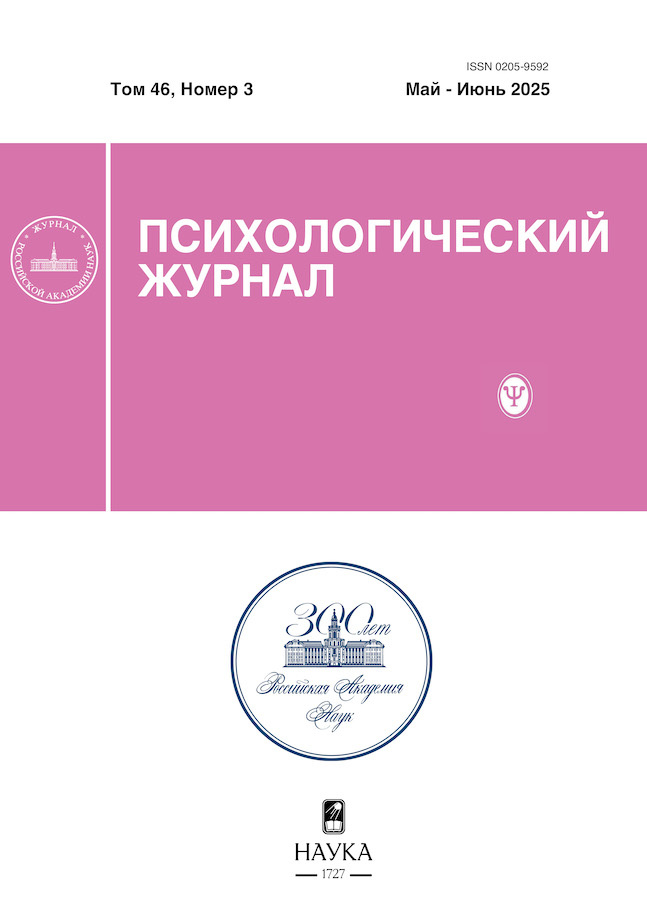Religious self-identification as an element of ordinary consciousness
- Autores: Zhuravlev A.L.1, Kitova D.A.1
-
Afiliações:
- Institute of Psychology of the Russian Academy of Sciences
- Edição: Volume 46, Nº 3 (2025)
- Páginas: 14-24
- Seção: Social psychology
- URL: https://cijournal.ru/0205-9592/article/view/688371
- DOI: https://doi.org/10.31857/S0205959225030026
- ID: 688371
Citar
Texto integral
Resumo
Society, as a large group of people united by their common interests, values and goals, is studied by the authors in terms of social behavior and social interaction, i.e. there is an accentuation on the models of social relations and interaction, which are the reflection of the everyday ideas of specific people. In turn, the consideration of the individual as a subject of social relations and a bearer of individual social experience is conceptualized at the level of personality research. It is shown that an appeal to the theory of social identification of the individual is important for identifying the structural and substantive elements (factors) that affect the nature of social interaction of people and are manifested in various variants of social behavior. This methodological approach is used to identify the “variable set” of elements that have a decisive impact on the choice of the group with which a person consciously or unconsciously identifies himself. The study made it possible to obtain information on the psychological factors of religious self-identification of the individual at the individual, regional, national and global levels. The study of religious identity in combination with basic personal characteristics of a person that are difficult to change allows not only to understand more deeply the mechanisms of formation, development and dynamics of religious identity, but also to reduce the diversity of elements of social self-identification to a certain set of typical factors that are identified and described in the work.
Texto integral
Sobre autores
A. Zhuravlev
Institute of Psychology of the Russian Academy of Sciences
Autor responsável pela correspondência
Email: alzhuravlev2018@yandex.ru
Academician of the Russian Academy of Sciences, Professor, Scientific Adviser
Rússia, 129366, Yaroslavskaya str., 13 MoscowD. Kitova
Institute of Psychology of the Russian Academy of Sciences
Email: j-kitova@yandex.ru
ScD (Psychology), Professor, Chief Researcher, Laboratory of the History of Psychology and Historical Psychology
Rússia, 129366, Yaroslavskaya str., 13 MoscowBibliografia
- Ачкасов В.А. Политика идентичности в современном мире // Вестник СПбГУ. Сер. 6. Политология. Международные отношения. 2013. № 4. С. 71–77.
- Журавлев А.Л., Китова Д.А. Вычислительный подход к анализу обыденного сознания: на примере изучения интернет-пространств. Методология современной психологии. Вып. 22. М., Ярославль: ЯрГУ, ЛКИИСИ РАН, МАПН, 2024. С. 70–84.
- Карлов В.В. Этническая идентификация в системе идентичностей глобального мира: тенденции изменений // Феномен идентичности в современном гуманитарном знании: к 70-летию академика В.А. Тишкова / сост. М.Н. Губогло, Н.А. Дубова. М.: Наука, 2011. С. 469–473.
- Китова Д.А. Отечественная психология в условиях развития глобальных процессов // Психологический журнал. 2019. Т. 40. № 2. С. 128–131.
- Китова Д.А., Журавлев А.Л. Глобальные процессы как объект социально-психологического исследования // Человеческий фактор: проблемы психологии и эргономики. 2017. № 4 (85). С. 307–314.
- Kim Y. Convolutional neural networks for sentence classification // arXiv preprint. arXiv:1408.5882. 25 Aug 2014. URL: https://arxiv.org/abs/1408.5882 (дата обращения: 01.03.2025).
- Porter M.F. An algorithm for suffix stripping // Program. 1980. V. 14. №. 3. P. 130–137.
- Shuyo N. Language detection library for java // Retrieved. 2018. Jul. V. 7. P. 2016.
Arquivos suplementares










